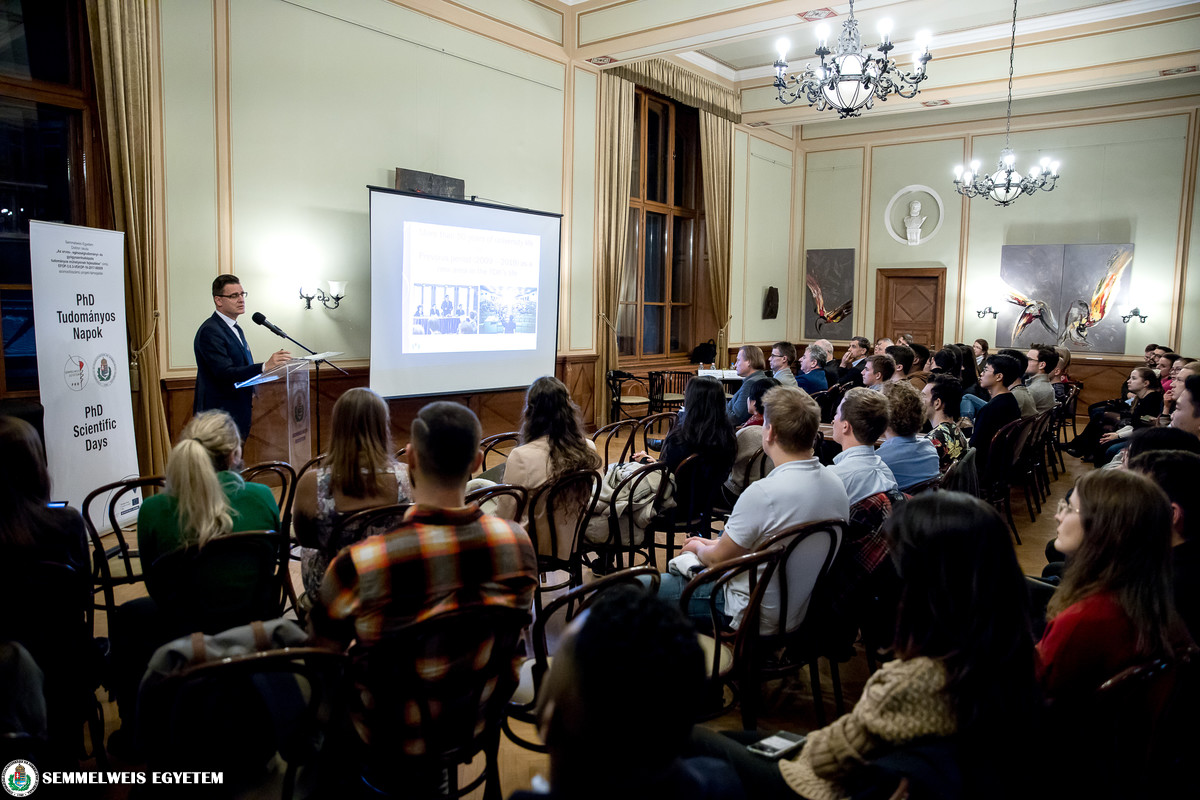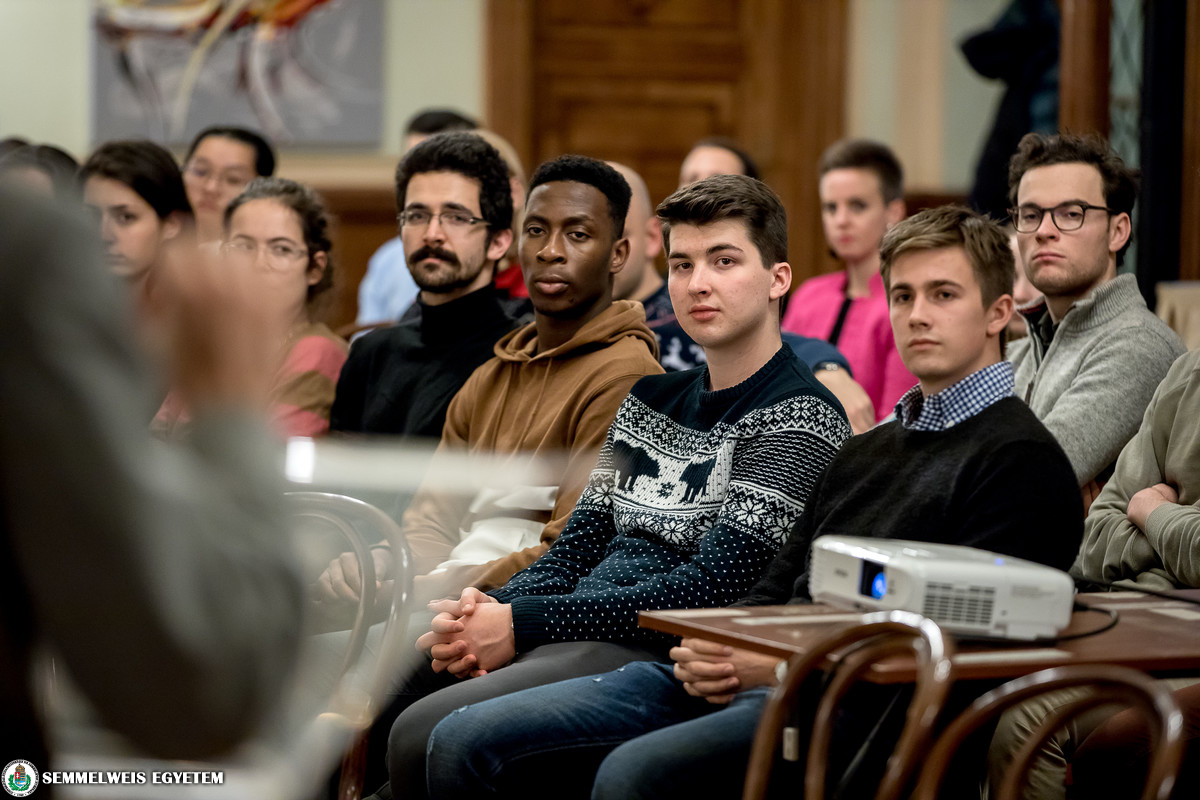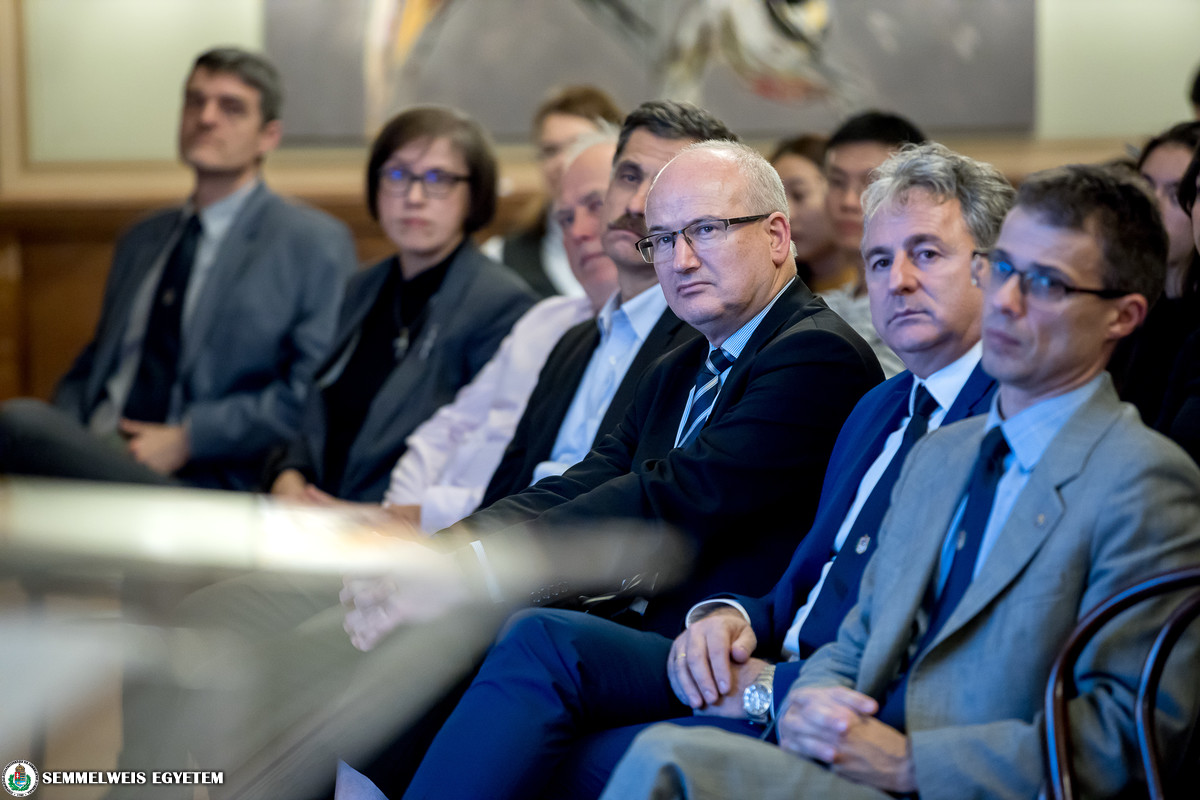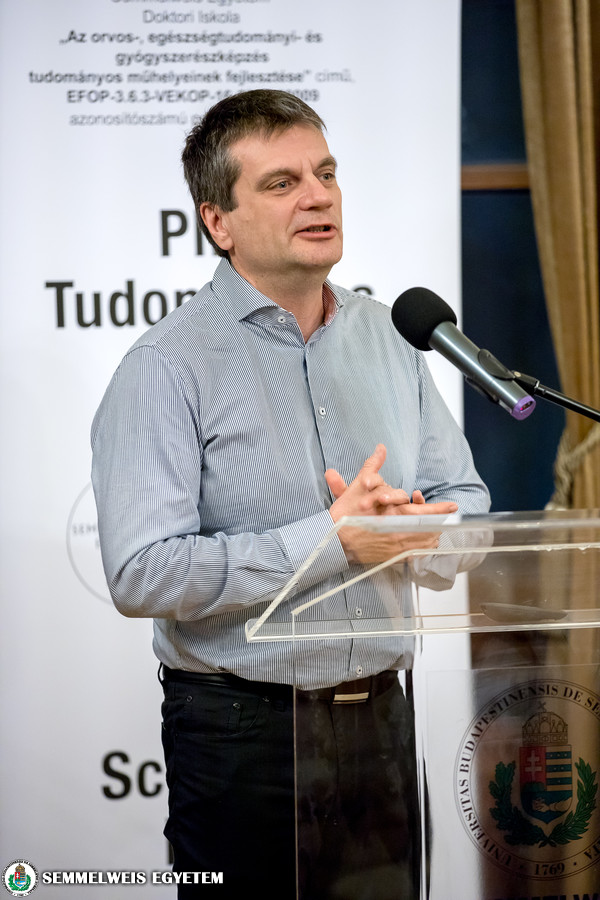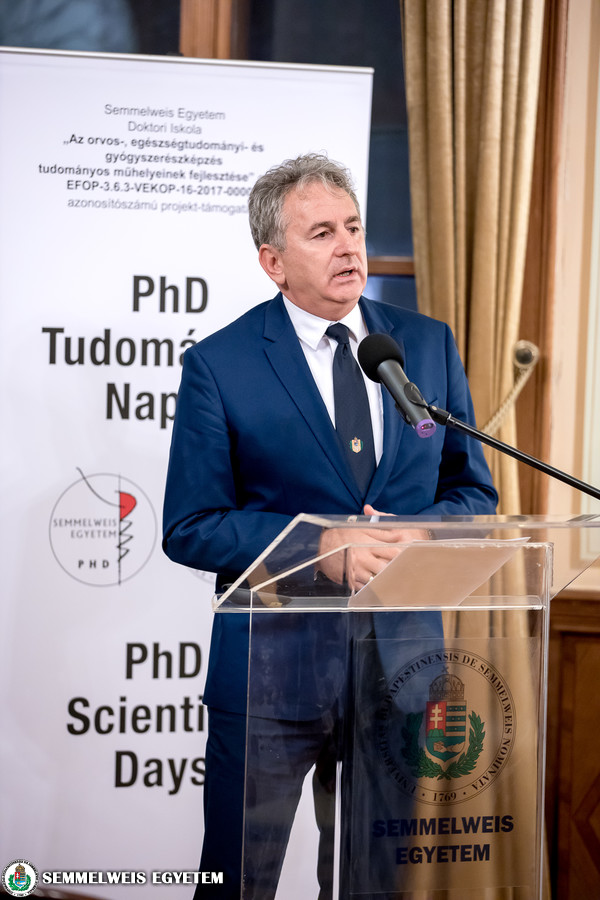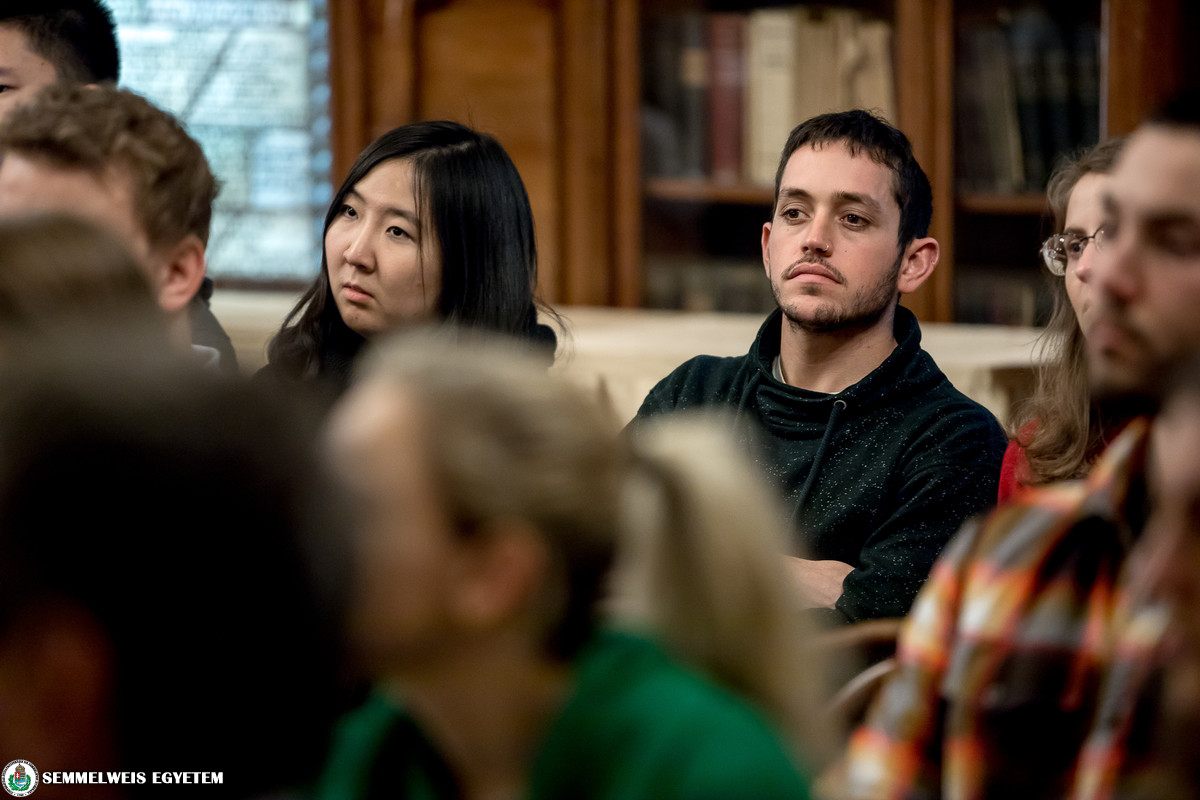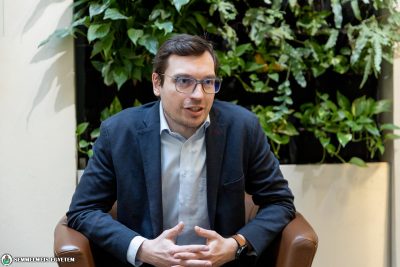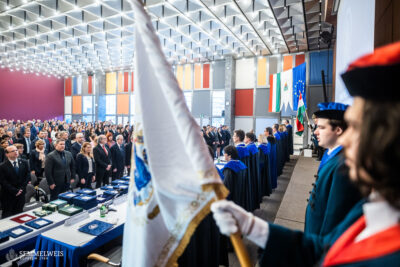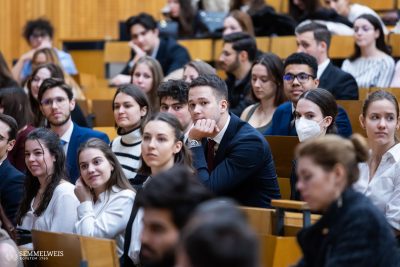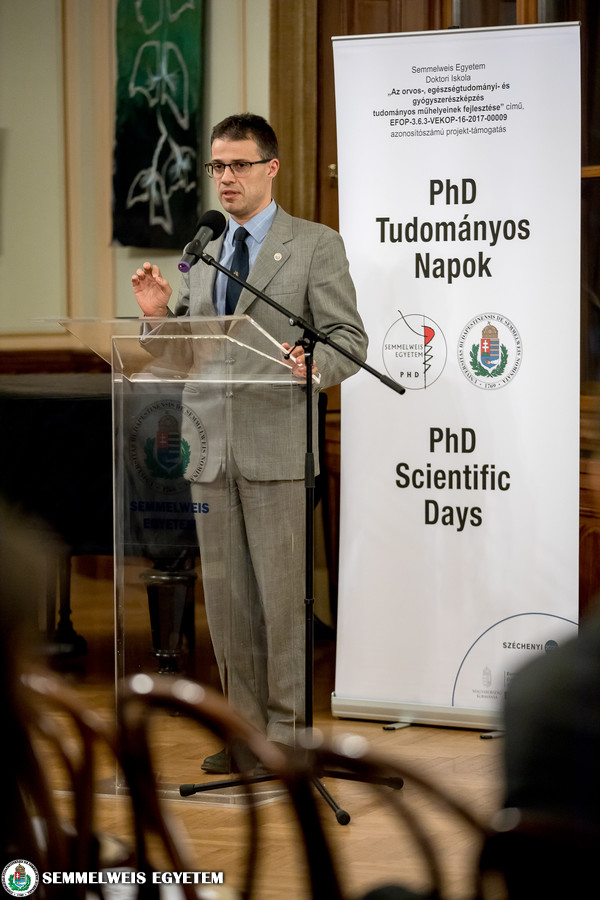 “As a student at Semmelweis University, you have the right to do scientific work, but it is a deep journey that requires devotion and a long-term commitment,” vice-rector for international studies Dr. Alán Alpár, and the head of the Center of Education of International Studies (CEIS), told the international students present at the forum. He noted that students interested in research need to be pro-active in approaching their instructors with this intent, and that even so they should be prepared that nothing is guaranteed, as only a portion of applicants are accepted into scientific activity.
“As a student at Semmelweis University, you have the right to do scientific work, but it is a deep journey that requires devotion and a long-term commitment,” vice-rector for international studies Dr. Alán Alpár, and the head of the Center of Education of International Studies (CEIS), told the international students present at the forum. He noted that students interested in research need to be pro-active in approaching their instructors with this intent, and that even so they should be prepared that nothing is guaranteed, as only a portion of applicants are accepted into scientific activity.
Dr. Péter Ferdinandy, vice-rector for science and innovation, emphasized the significance of the Students’ Scientific Association (TDK) program. This is a unique opportunity to increase scientific knowledge and pursue a career in science, he said, also noting that joining the program requires dedication and spending extra time on scientific research. “The TDK is a first step if you want to pursue a career in research, as later you can join a Doctoral School and get a PhD,” said the vice-rector.
Addressing the international students in the audience, Dr. Miklós Kellermayer, dean of the Faculty of Medicine, said that deciding whether research is for a certain person is a big question that should be given careful consideration. He stressed several points however why it is a good decision, saying that it boosts self-confidence and generates and facilitates critical thinking. His advice was to do research at a school, after studying its activity and the kind of research they do, to find one that best fits a person’s own field of interest.
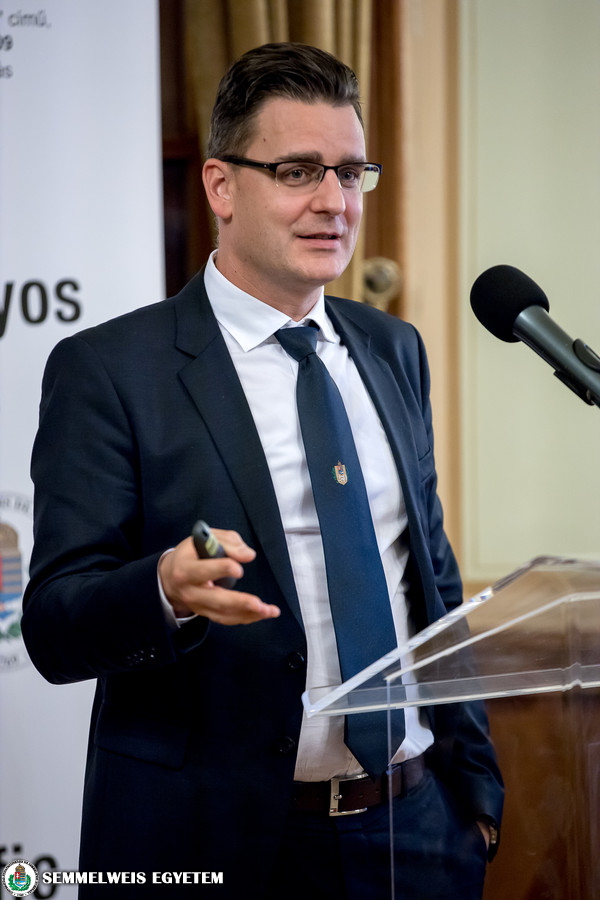 Dr. Attila Szíjártó, the president of the Students’ Scientific Committee, talked about the details of the TDK program available to international students. “The aim of the TDK program is to inspire students to pursue an active and fruitful research career,” he noted, adding that although the TDK is more than 50 years old, it has really gone through a new, more dynamic period over the past 10 years, when it was led by the current rector, Dr. Béla Merkely. He discussed the association’s organizational structure, and called attention to the TDK conference that is held each year, with special note to the International TDK Conference. He pointed out that there are currently around 900 Hungarian and 100 international TDK members, and that four of the 14 international students presenting at last year’s TDK conference came away with prizes.
Dr. Attila Szíjártó, the president of the Students’ Scientific Committee, talked about the details of the TDK program available to international students. “The aim of the TDK program is to inspire students to pursue an active and fruitful research career,” he noted, adding that although the TDK is more than 50 years old, it has really gone through a new, more dynamic period over the past 10 years, when it was led by the current rector, Dr. Béla Merkely. He discussed the association’s organizational structure, and called attention to the TDK conference that is held each year, with special note to the International TDK Conference. He pointed out that there are currently around 900 Hungarian and 100 international TDK members, and that four of the 14 international students presenting at last year’s TDK conference came away with prizes.
As for how to become a TDK member, Dr. Szíjártó said the first step should be selecting a field of interest, after which an indication of interest should be made at the institutional TDK coordinator, where the registration process can also be completed. It is also possible to do TDK research at some non-university institutes, he noted, while the requirement is to spend six months at an institute doing active research. He also called attention to a newly launched elective course, currently available in Hungarian but which will be offered next year in English well, called “introduction to the principles of student scientific research.” In closing, he urged students to take part in and sign up for the next TDK conference, which will be held on March 18-20, 2020, within which the International TDK conference will be held on March 19, where the deadline for applications is December 13.
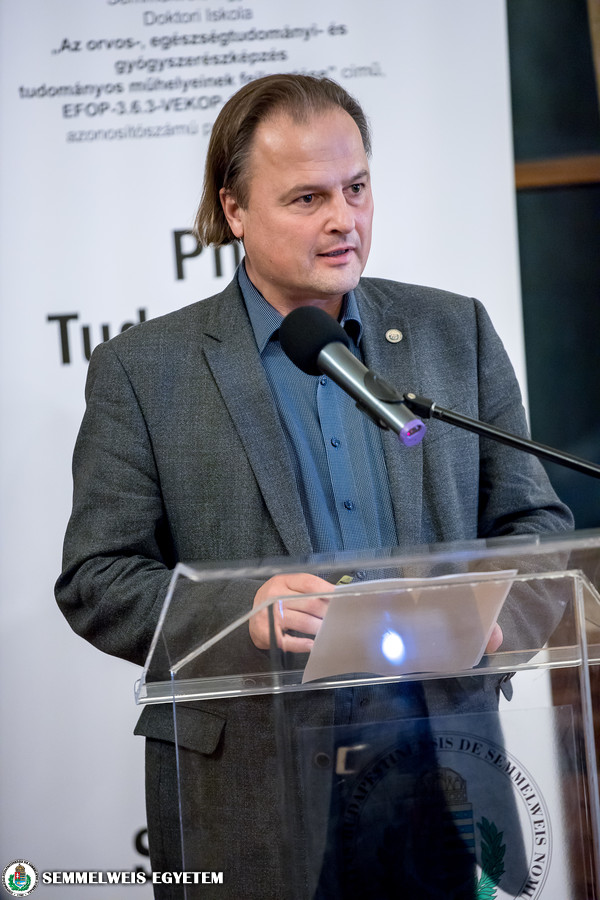 Dr. Zoltán Benyó, president of the Doctoral Council, informed international students about the various opportunities offered by Semmelweis University to get a PhD doctorate. He mentioned that the university has eight doctoral schools in various topics, and there are more than 100 accredited topics to choose from. He discussed the structure of the programs, which can vary from five to eight semesters in total, including education, research and dissertation phases. In terms of financing, Dr. Benyó said that EU citizens can apply for fellowships from the Hungarian government, while others have to be self-financed, paying a EUR 8,000 per semester tuition. For Semmelweis graduates, the tuition fee is half the normal rate, he pointed out. He also called attention to the MD/PhD Excellence Program they offer, where TDK students may be admitted four semesters before they graduate, and continue their studies for one to four semesters after graduation. The tuition for this program is EUR 4,000 per semester, and Dr. Benyó pointed out that applications for the second semester are now open, until the end of January.
Dr. Zoltán Benyó, president of the Doctoral Council, informed international students about the various opportunities offered by Semmelweis University to get a PhD doctorate. He mentioned that the university has eight doctoral schools in various topics, and there are more than 100 accredited topics to choose from. He discussed the structure of the programs, which can vary from five to eight semesters in total, including education, research and dissertation phases. In terms of financing, Dr. Benyó said that EU citizens can apply for fellowships from the Hungarian government, while others have to be self-financed, paying a EUR 8,000 per semester tuition. For Semmelweis graduates, the tuition fee is half the normal rate, he pointed out. He also called attention to the MD/PhD Excellence Program they offer, where TDK students may be admitted four semesters before they graduate, and continue their studies for one to four semesters after graduation. The tuition for this program is EUR 4,000 per semester, and Dr. Benyó pointed out that applications for the second semester are now open, until the end of January.
Following the presentations, the host of the evening, Dr. Marcel Pop, director of the Directorate of International Relations, invited some current and previous international Semmelweis University students to talk about their experiences taking part in the TDK and PhD programs and to give advice to prospective new students looking for a career in science. At the end of the event, a Q&A session was held where students could ask specific questions from the university leaders present.
Tamás Deme
Photo: Attila Kovács – Semmelweis University
